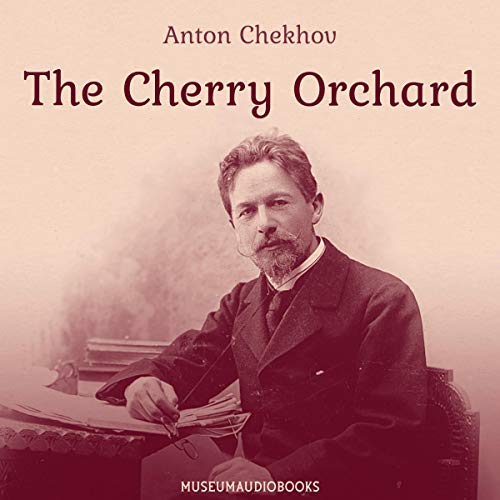Anton Chekhov, Andrea Giordani, MuseumAudiobooks.com
The Cherry Orchard
The Cherry Orchard (1903) is the final play by the Russian playwright Anton Chekhov. It is considered as one of four outstanding plays by Chekhov, along with The Seagull, Three Sisters, and Uncle Vanya. The narrative recounts an aristocratic landowner who returns to her family estate just before it is auctioned to pay the mortgage. It dramatizes the socio-economic developments in Russia at the turn of the 20th century, including the rise of the middle class after the abolition of serfdom and the waning power of the aristocracy.
